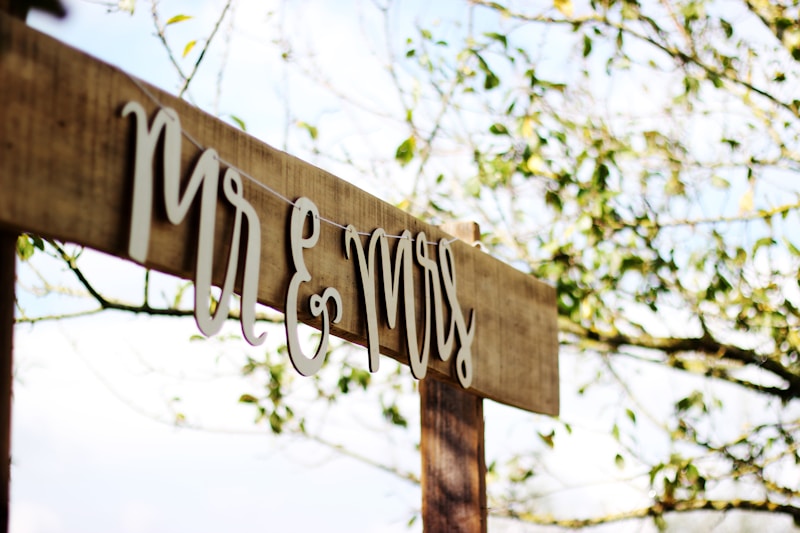How Early is Too Early for Dress Decisions? A Complete Guide for the Fashionably Savvy
How Early is Too Early for Dress Decisions? A Complete Guide for the Fashionably Savvy
Understanding the Right Timing for Your Dress Decisions
When planning for any major event like a wedding, prom, or formal party, one of the most daunting tasks can be deciding when to select your dress. You may wonder, "How early is too early for dress decisions?" Let's examine this question in detail while providing helpful insights and tips to ensure your dress selection process is smooth and enjoyable.
Factors to Consider Before Making Dress Decisions
Several factors can influence how early you should start thinking about your dress choices. Below are a few critical points to consider:
| Factor | Importance |
| Event Type | Different events have different timelines |
| Personal Style | Aligning your choices with your individuality |
| Season | Weather and style changes throughout the year |
| Budget | Affording the right dress may take time |
| Customization Needs | Tailoring may require more time |
Event Type and Dress Decisions
The significance of the event heavily dictates how much time you need to plan your dress choices. For example, a wedding is often one of the most planned-out events; therefore, it's advisable to start your search at least six to twelve months in advance. Prom, on the other hand, may empower you to make decisions closer to the event, typically within three to six months. Understanding the nature of the event helps set the stage for your dress planning timeline.

Your Personal Style
Knowing your personal style is crucial. Some people need time to explore and refine their fashion preferences, while others may know exactly what they want from the outset. If you often change your mind or want to explore various styles, start shopping early to allow time for a gradual discovery process. You may be surprised by how your choices evolve over several months.
The Impact of Seasons on Dress Decisions
Understanding the seasons can provide invaluable insight into your dress decisions. Different fabrics, colors, and styles are associated with various weather conditions. For example, if you have a summer wedding, consider breathable fabrics like chiffon or tulle in lighter shades. Planning for a winter event? Think about heavier fabrics like satin or velvet in rich colors.
Budget Considerations
Budget plays a significant role in dress decisions. By starting your search early, you can compare prices across different retailers, online shops, and boutiques. This comparison allows you to make more informed choices and possibly secure a better deal. Additionally, if you desire a custom piece, it often requires more time, so budgeting for that can also define how early your decisions should be made.
Customization and Its Timelines
If you're dreaming of a custom-made dress, this process usually involves multiple fittings and consultations with designers. It's advisable to allow at least 4-6 months for custom orders. Remember, the more intricate your design is, the more time you will need to ensure everything is perfect.
Understanding Trends and Industry Timing
Fashion trends are always changing, and being aware of industry timings can give you the upper hand. Many designers release their collections two seasons in advance, so exploring these releases can inspire your choices. Additionally, many bridal boutiques and formal wear shops launch promotions around peak shopping periods, meaning that shopping early could actually save you money!
Common Questions Around Dress Decisions
As you delve deeper into the planning process, you may come across several questions about dress decisions. Below are some popular queries:
- What should I consider when choosing my dress fabric? - The season and venue play a large part in this. For example, lightweight and flowy fabrics are great for outdoor summer events, while heavier materials work well for winter.
- How do I know if I should go for a classic or trendy dress? - Classic styles tend to be timeless, while trendy looks may risk becoming outdated quickly. Consider your personal style and how you want to feel on your special day.
- How can I accessorize my dress without overpowering it? - Choose one statement piece—be it jewelry, a bold handbag, or elaborate shoes—to let your outfit shine without overwhelming it.
- Should I involve friends or family in my decision? - Having a trusted circle can help share perspectives, but be careful about spreading too many opinions, which can cloud your personal choices.
Summarizing Dress Decision Timing and Tips
In summary, how early is too early for dress decisions largely depends on several factors such as the type of event, your personal style, and your budget considerations. While six to twelve months ahead is optimal for formal events like weddings, proms allow for a more relaxed timeline of three to six months. The key is to stay organized, remain adaptable with personal styles, and consider the impact of seasonal trends while planning.
Final Tips:
- Begin your search early to allow for time to explore options, compare prices, and make decisions without feeling rushed.
- Keep track of trends to ensure your dress feels current and fresh.
- Incorporate feedback from trusted individuals but trust your instincts first.
- Consider the full picture, including accessories and tailoring, as you plan your dress journey.
In conclusion, the world of fashion requires careful timing and consideration. By assessing your specific needs, you can make dress decisions that not only make you look your best but also feel confident in your choices. Happy planning!
